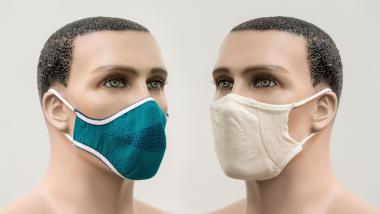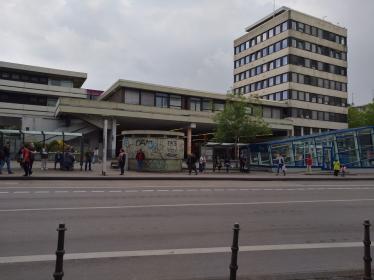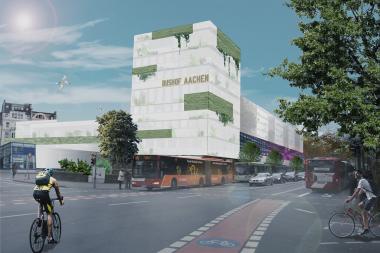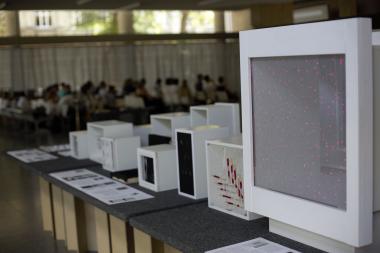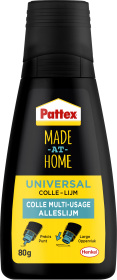TU Dresden präsentiert textile 3D-gestrickte Mund-Nasen-Masken
- Anforderungs- und passformgerechte textile 3D-gestrickte Mund-Nasen-Masken – Weitere Initiativen am ITM der TU Dresden
Seit dem 20. April 2020 gilt für das Bundesland Sachsen eine Maskenpflicht beim Einkaufen und im öffentlichen Personen- und Nahverkehr. Eine entsprechende Verordnung wurde hierfür am 17. April 2020 vom Freistaat Sachsen bekannt gegeben.
Aufgrund der neuerlassenen Allgemeinverfügung und der damit einhergehenden, notwendi-gen Schutzmaßnahmen zur Verringerung der Ausbreitung von COVID-19 wird das Institut für Textilmaschinen und Textile Hochleistungswerkstofftechnik (ITM) der TU Dresden nach der am 20. April 2020 erfolgten Wiederaufnahme des laborbasierten Forschungsbetriebes die bereits in der ITM-Pressemitteilung vom 31. März 2020 vorgestellte textile, 3D-gestrickte Mund-Nasen-Maske intensiv weiterentwickeln. Das ITM möchte damit einen wichtigen aktiven Beitrag zum Schutz der Gesundheit der Bevölkerung leisten.
Hierfür sind in den letzten Tagen die Kooperationen mit langjährigen Netzwerkpartnern des ITM wei-ter intensiviert worden. Gemeinsam mit der renommierten Textilmaschinenfirma H. Stoll AG & Co. KG aus Reutlingen ist es gelungen, mit dem am ITM erarbeiteten technologischen Know-how auf einer am ITM der TU Dresden installierten Flachstrickmaschine Stoll ADF 530-32 BW weitere Vari-anten neuartiger, textiler 3D-gestrickter Mund-Nasen-Masken erfolgreich umzusetzen.
Am ITM können somit Mund-Nasen-Masken-Varianten mit unterschiedlichsten Materialkombinatio-nen auf Flachstrickmaschinen von zwei Maschinenherstellern, die sich alle als waschbarer und damit wiederverwendbarer Mund-Nasen-Schutz eignen, anforderungs- und passformgerecht gefertigt wer-den. Je nach Materialzusammensetzung sind die Mehrwegmasken für Kochwäsche mit handelsübli-chen Waschmitteln bzw. bei 60° mit Desinfektionswaschmittel geeignet. Bei den Masken kann wahl-weise eine Tasche direkt im Fertigungsprozess integriert werden, in die temporär noch zusätzlich Fil-terstrukturen eingelegt werden können. Die gestrickten Mund-Nasen-Masken sind – intuitiv, schnell, unkompliziert in der Handhabung – auch für Brillenträger geeignet und erfordern beim Anlegen keine Hilfe einer weiteren Person. Mittels weiterer anforderungsgerechter Materialkombinationen können auch spezifische Eigenschaften, wie z. B. Atmungsaktivität, Tragekomfort und Hautverträglichkeit, ge-zielt eingestellt und diesbezüglich im Rahmen erster freiwilliger Versuchsreihen mit Mitarbeitern des ITM intensiv getestet werden.
Als eines der weltweit führenden Textilforschungsinstitute wird das ITM mit der lösungssystemati-schen Entwicklung anforderungsgerechter Mund-Nasen-Masken einen wichtigen gesellschaftlichen und nachhaltigen Beitrag für das Gemeinwohl der Bevölkerung leisten. Das Team des ITM, welches maßgeblich bei der Maskenentwicklung involviert ist, freut sich daher auf weitere Anfragen von Her-stellern und Produzenten, um mit dem erarbeiteten Fachwissen bzw. Erfahrungen und technologi-schem Know-how insbesondere die KMU der deutschen Textilindustrie beratend zu unterstützen und ggf. gemeinsame Allianzen/Kooperationen zu schmieden.
Bereits jetzt schon steht das ITM mit mehreren Industriepartnern in Kontakt, um die Technologie zur Fertigung von textilen 3D-gestrickten Masken schnell in die Serienproduktion zu überführen und dar-über hinaus diese anforderungsgerechten textilen Produkte auch zeitnah als nach den geltenden Standards bzw. Richtlinien zugelassene Schutzmasken anzubieten.
Für die zielführenden Untersuchungen mit variablen Materialkombinationen zur weiteren Op-timierung der unterschiedlichen Maskenvarianten wurden dem ITM bereits verschiedenste Versuchsmaterialien kostenfrei zur Verfügung gestellt. Das ITM bedankt sich hierfür bei folgenden Firmen: EMS-CHEMIE AG, Gebrüder Otto GmbH & Co. KG, TWD Fibres GmbH und W. Zimmermann GmbH & Co. KG.
Technische Universität Dresden
Institut für Textilmaschinen und Textile Hochleistungswerkstofftechnik (ITM)


